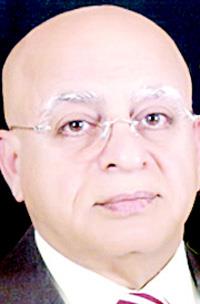
Kuwait- Failure of institutes
When you read this article I am on my way to India and Thailand to spend my Christmas and New Year holidays, away from the influence and domination of the evil brothers. 'When we were young, our mothers used to tell us to be grateful, eat vegetables for dinner, and not to leave anything,' says American journalist Thomas Friedman. He went on to say, 'In India there is starvation. I ask my children to finish their homework and excel in what they do, otherwise the children in India when they grow up will become heads of our corporate boards in the United States and we will hunt for jobs.'
I remembered that when I was listening to an interview with Indra (Krishnamurthy) Nooyi, chairperson and CEO of PepsiCo, the world's second largest food company, born in India in 1955. There are hundreds of Indians like her and better, especially in technology companies such as Apple, Oracle, Google, and in communications companies such as Motorola, and the major banks, not to mention their creativity in dozens of other scientific, artistic and cultural fields.
As a matter of fact, we are still sitting by the roadside, doing nothing but mocking the Indians, unaware that India possesses the (future wealth) of information and scientific data today that makes it better and a faster competitor in the fields of education, health insurance, entertainment, banking, finance and others, now and for future.
In his article on India, Friedman says he was most impressed with what Nandan Nilekani (entrepreneur, bureaucrat and politician and co-founder of Infosys and is the Non Executive Chairman of Infosys) did in 2009, when he led, in a smooth and precise manner, a campaign to issue a civil card for every Indian citizen which contains the basic information about the holder.
It is said 1.3 billion cards were issued, while similar cards which are issued in Kuwait does not exceed five million but overcrowding in front of the Public Authority for Civil Information offices does not end. The miracle is that nobody in India had an identity card seven years ago, except for a very few. The revolutionary government's decision allowed hundreds of millions of Indians to open accounts in the bank, obtain passports, deposit government aid directly in their accounts, obtain health insurance, and so on.
Therefore, Aadhaar, India's card issuer has become the first company outside the United States to issue more than one billion identity cards. It is hard to pin down the benefits of this giant project, which has changed the lives of hundreds of millions of people in a single step. It is believed this system will add $1 trillion to the Indian economy for the next seven to 10 years. India is also in the process of stopping its dependence on coal and gas for power generation, and in order to achieve this, it has sought to build clean power generation fields in various states. In Kuwait, we are the most polluted Gulf country, not because of its factories, but because of the failure of the Environment Public Authority.
By Ahmad Al-Sarraf
email:

Legal Disclaimer:
MENAFN provides the
information “as is” without warranty of any kind. We do not accept
any responsibility or liability for the accuracy, content, images,
videos, licenses, completeness, legality, or reliability of the information
contained in this article. If you have any complaints or copyright
issues related to this article, kindly contact the provider above.


















Comments
No comment